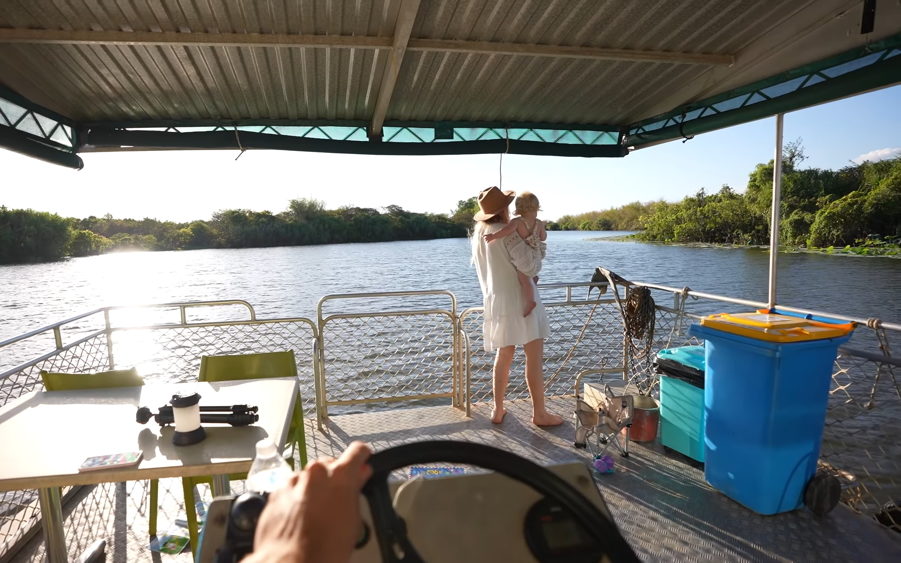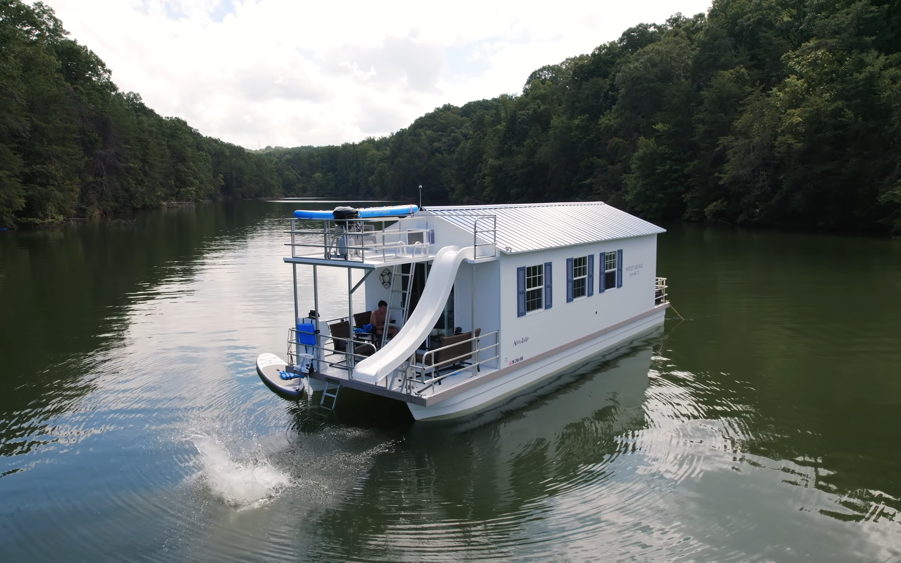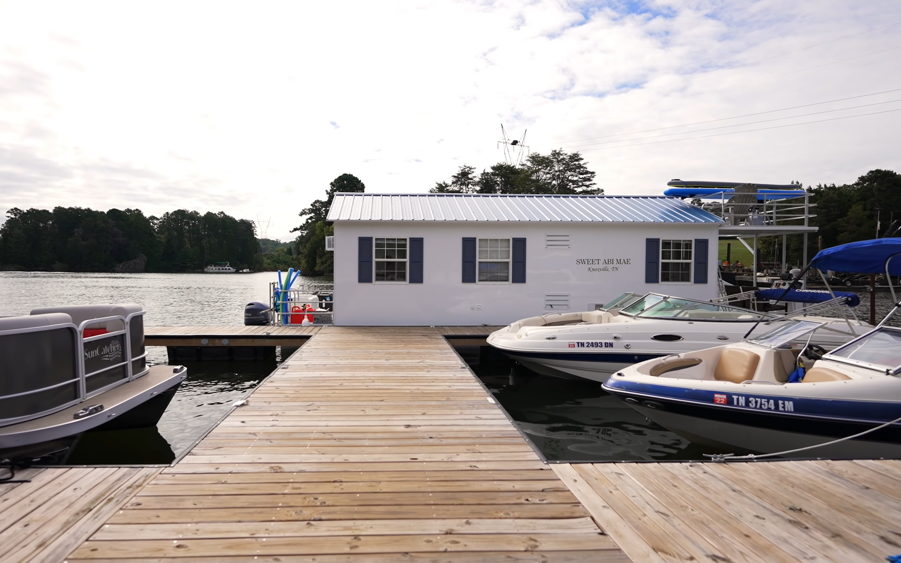Yes, you can live on a houseboat in most states. However, there are some restrictions to keep in mind. For example, if the boat is moored at a marina or docked at a dock, you must pay a property tax. If the ship is tied to a private pier or in a slip, there may be additional restrictions regarding living space and how long you can live there.
What are the legal requirements for living on a houseboat?
Several states have regulations in place governing houseboats. These regulations vary from state to state but typically include the vessel’s registration, titling, and taxation. Some states also prohibit people from living on their houseboats for extended periods. It is essential to be aware of the laws in your state before you move onto a houseboat.
Coast Guard regulations:
The Coast Guard has several regulations in place that apply to houseboats. These include fire safety requirements and minimum standards for the vessel’s construction. Additionally, the Coast Guard requires that all houseboats be registered and titled.
Insurance:
Ensuring adequate insurance coverage when living on a houseboat is also vital. Standard homeowner’s insurance policies typically cover houseboats, but you must check with your insurer to ensure you are adequately covered. You may also want to consider additional coverage for flooding or storm damage.

What do you need to know before you move onto a houseboat?
Before moving to live on a houseboat, you need to do your research. You need to research the area where you want to live, what type of houseboat you want to buy or rent, and the cost of living on a houseboat.
Cost:
The cost of living on a houseboat can vary depending on the size and location of the houseboat, as well as the amenities included. Make sure to factor in the cost of utilities, insurance, and maintenance when budgeting for your new home.
Insurance:
You will need to purchase insurance for your houseboat just as you would for a traditional home. Make sure to shop around and compare rates before buying a policy.
Maintenance:
Living on a houseboat requires additional maintenance tasks that you may not be used to if you’ve always lived on land. You will need to clean your boat’s hull regularly and check for any damage that may have occurred from waves or other ships passing by.

How do you find a houseboat to live on?
There are a few ways to find a houseboat to live on. The first is to search online classifieds websites like Craigslist or Freecycle. Another option is to look for marinas in your area that offer houseboat rentals. Finally, you can contact a houseboat broker to help you find a suitable vessel.
What to consider:
When considering a houseboat as a place to live, there are a few essential factors to keep in mind:
- You must ensure the boat is large enough for your needs and has all the necessary amenities (e.g., kitchen, bathroom, etc.).
- You need to consider the cost of living on a houseboat, which includes mooring fees and utilities.
- You must ensure the boat is in the area you’re comfortable with and has good weather conditions year-round.
How to negotiate:
If you’re interested in living on a particular houseboat, the next step is negotiating with the owner/operator. This process can be tricky since there’s often little room for negotiation regarding price and other terms. However, being assertive and clear about what you want/need from the arrangement is essential. Sometimes, having a lawyer review the contract may be helpful before you sign anything.
Pros and cons of living on a houseboat
Pros
1. Houseboats provide a unique and exciting living experience.
2. They are often located in scenic areas, providing beautiful views.
3. Houseboats can be less expensive than traditional homes, depending on the location and amenities.
4. Maintenance costs for houseboats are typically lower than for traditional homes.
5. Houseboats offer great flexibility in terms of living arrangements – they can be moved if necessary and often come with all the required hookups (water, electricity, etc.).
Drawbacks:
1. Houseboats can be challenging to finance and insure.
2. They may also be subject to more stringent regulations than traditional homes due to their floating status.
3. Houseboats can also be more challenging to maintain than traditional homes – they may require special care in terms of cleaning and repairs.
4. Living on a houseboat can also be isolating since they are often located in remote areas.
5. Finally, houseboats can be challenging to sell since there is usually a limited market for them

How do you insure a houseboat?
The cost of houseboat insurance varies depending on the size and value of your boat, as well as where you keep it moored. Generally, the larger your houseboat’s worth, the more expensive your insurance will be.
Coverage:
Most houseboat insurance policies cover damage to your boat caused by weather, fire, theft, or collision. Some policies will also cover personal belongings stored on board and liability in case someone is injured while on your boat.
Types of Insurance:
There are two main types of houseboat insurance: comprehensive and hull only. Comprehensive coverage includes protection for damage caused by weather, fire, theft, or collision, while hull-only coverage protects against harm to the boat’s hull.
What are the challenges of living on a houseboat?
Houseboats require regular maintenance, just like any other type of vessel. You will need to clean the hull regularly to prevent barnacles and different marine life from attaching themselves and potentially damaging your boat. You will also need routine engine and system maintenance to keep everything in working order.
Insurance:
Houseboat insurance can be challenging to obtain and is often more expensive than insurance for a traditional home. This is because insurers view houseboats as a higher risk due to their unique nature. You must shop around carefully to find an insurer willing to provide reasonably priced coverage.
Financing:
It can be challenging to obtain financing for a houseboat, as lenders view them as a high-risk investment. If you are able to find the funding, the interest rates are often higher than for a traditional home loan. You may also have difficulty finding a lender willing to finance the purchase of an older boat.
Weather:
Living on a houseboat exposes you to the elements, so you must be prepared for bad weather conditions. Strong winds can cause waves that damage or even capsize your boat, so it’s essential to have a plan in place in severe weather conditions.
Privacy:
Living on a houseboat can be a very isolating experience, as you are often cut off from the rest of the world. If you are not comfortable being alone for long periods, then living on a houseboat may not be the right choice for you.
How do you decorate a houseboat?
You can choose to decorate your houseboat as you would a typical home. This means that you can paint the walls, put up pictures and posters, get curtains for the windows, etc. If you want to do this, you should ensure that the paint and other materials are water-resistant. Here we have listed some things to keep in mind when decorating a houseboat:
Your budget is the first thing you need to consider when decorating a houseboat. How much can you afford to spend on decorations? You’ll need to be creative with your decorating choices if you’re on a tight budget.
Space: Another important consideration is space. Houseboats are usually smaller than traditional homes, so you’ll need to be mindful of the space you have to work with. Choose decorations that are functional and won’t take up too much space.
Functionality: Finally, you’ll want to choose decorations that are functional as well as stylish. Consider items that serve multiple purposes or can be easily stored when not in use.
What are the best houseboats to live on?
There are several types of houseboats that you can live on, each with its own set of pros and cons. The pontoon boat is the most popular type of houseboat, a flat-bottomed vessel that is great for calm waters.
Pontoon boats are usually the most affordable option and can be easily customized to your liking. Another popular type of houseboat is the catamaran, a two-hulled vessel that is very stable in rough waters. Catamarans are typically more expensive than pontoon boats but offer more space and comfort.
Features to look for:
When choosing a houseboat to live on, there are several essential features to look for. First, you want to ensure that the vessel has enough space for you and your belongings. You should also consider the boat’s layout and ensure it has all the amenities you need, such as a kitchen, bathroom, and bedroom. Additionally, you want to ensure that the boat is safe and seaworthy before making any commitments.
Cost:
Houseboats can range in cost depending on their size and features but typically start around $50,000. If you’re looking for a luxurious option with all the bells and whistles, you can expect to pay upwards of $100,000. However, more affordable options are available if you sacrifice some space and amenities.

